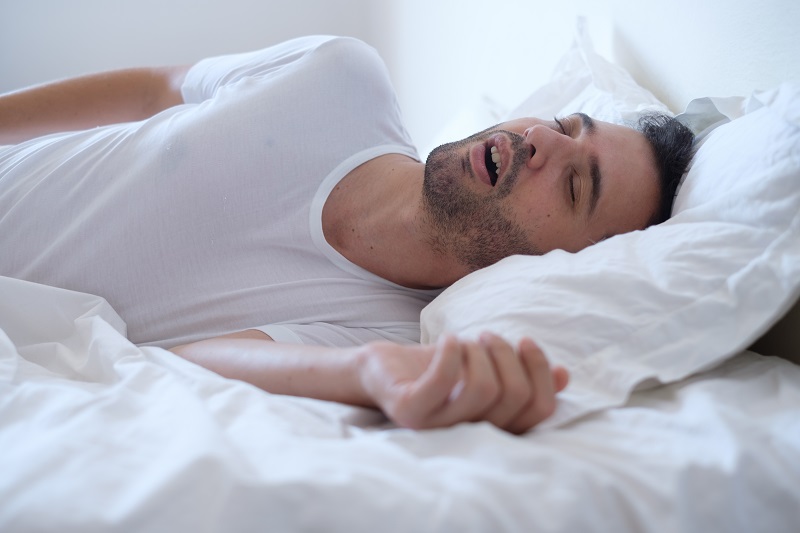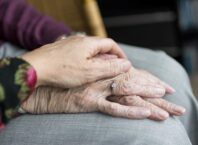Table of Contents
Sleep deprivation and fatigue can leave you dragging, but more importantly, they decrease your productivity and performance. Whether it’s in the workplace or your personal life, staying on top of and meeting all your responsibilities can be tough without enough sleep. If you’re looking to improve your productivity or improve the quality of your work, you might not need to look further than your own bed. Sleep helps your ability to problem-solve, make quick decisions, and stay mentally sharp.

The Need for Sleep
Some people consider sleeping a luxury when it’s actually a necessary biological function. The average adult needs seven to eight hours of sleep for the body to be fully restored and rested. Whenever you get less, you enter a state of sleep deprivation.
It’s easiest to understand what sleep does by looking what happens to the human body without it. Sleep deprivation causes neurons in the brain to slow down the rate at which they send messages. When the brain doesn’t have enough time to prune and strengthen connections made during the day, your decision-making abilities, reasoning skills, and reaction times slow down too.
If you have an occupation that requires quick thinking, your productivity and safety could be compromised. Some professions, like commercial truck drivers or business travelers, may put their lives and the lives of others at risk when they get inadequate amounts of sleep. With less than four hours of sleep, the chances of getting in a car accident are 11.5 times higher than usual.
Sleep stabilizes your appetite and metabolism by balancing the release of the hunger hormones. Without rest, overeating and unwanted weight gain are far more common. Sleep deprivation further affects your health by slowing down the healing and recovery of your body.
Related:
Discover the Power of Naps
The biggest boost you can give to your productivity is to get a good night’s rest every night. However, sometimes stress, health conditions, or a sick child can get in the way.
That’s where naps come in.
Naps have restorative power, but we’re not talking about just any kind of nap. If you fall asleep for too long, say over 90 minutes, you risk waking up groggy or face trouble falling asleep at night. Not only that, your boss probably won’t like you taking that long of a break. On the other hand, too short (less than 15 minutes) and you’ve done little to counteract the effects of sleep deprivation. For most people, 90 minutes or less gives you the best results, including:
-
Improved Memory: Sleep deprivation wreaks havoc on your memory. A study done at the University of York found that taking a nap helped the brain use knowledge more efficiently. Participants who napped were better able to adapt their memories of past experiences and apply them to present and future situations. The research further showed that napping strengthened both the old memory and newly created ones. Naps also provide a chance for the brain to consolidate memories for clearer, more precise thinking.
-
Maintaining Productivity: It probably doesn’t come as a surprise that if you repeatedly take the same test, whether physical or mental, throughout the day, the results will slowly deteriorate from fatigue. However, a study published in Nature Neuroscience found that a midday nap allowed participants to maintain test scores over time. While the purpose of this study was to test perceptual deterioration, it also showed that naps could help prevent deterioration of mental capabilities.
-
Better Health: Sleep deprivation depresses the immune system, putting you at an increased of illness. When you do get sick, sleep deprivation makes it harder to fight off disease. However, in a study conducted by the Centers for Disease Control and Prevention, it was found that a 30-minute nap can reverse some of the effects of sleep deprivation on the immune system. The study showed that a nap reduced stress hormone levels and returned antiviral protein levels to normal, which put the immune system back at full capacity.
-
Getting Creative: Naps get your creativity flowing. A study conducted at the University of California – Riverside found that after napping, participants who took word tests were able to think flexibly and make more new word combinations. The participants took 90-minute naps which were long enough for them to enter rapid eye movement (REM) sleep, the deepest sleep stage where brain activity mimics that experienced during the day. Creative connections and problem-solving often take place during this sleep stage. Getting a quick hit of REM sleep midday can give you the afternoon boost you need.
Encourage Healthy Sleep
Naps can be a lifesaver when you’ve had a bad night’s rest. But as great as naps are, you should also try to focus on getting a full seven hours of sleep every night. Here are a few tips to help you get some shut-eye:
-
A Consistent Bedtime: Your sleep cycle relies on a consistent schedule. By going to bed at the same time every night, you help your brain know when to release sleep hormones.
-
Bedtime Routine: Help your mind and body wind down after a stressful day with a relaxing bedtime routine. Activities like taking a warm bath, reading a book, or listening to quiet music help your body quiet down for the night.
-
Cut Your Screen Time: The bright light from electronic devices can suppress the release of sleep hormones. Try turning them off two to three hours before bedtime.
Article by: Samantha
Sam Kent is a researcher for SleepHelp. Her favorite writing topic is how getting enough sleep can improve your life. Currently residing in Boise, Idaho, she sleeps in a California King bed, often with a cat on her face.















